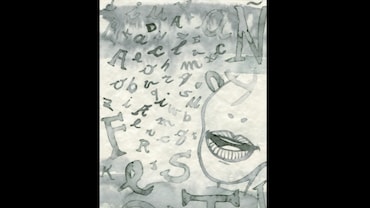- HOME
- /
- Conversations
- /
Lessons In Giving
Teaching children how to give may just result in a more compassionate world
 Photo: The Last Truth FoundationThe Reading Revolution enables children to experience the joy of giving.
Photo: The Last Truth FoundationThe Reading Revolution enables children to experience the joy of giving.
There is little to deny that giving is the currency of compassion and kindness, but it is in the act of giving that we receive something far more valuable—a full, happy heart. DaanUtsav, started in 2009, celebrates just that. Unlike most philanthropic campaigns geared to achieving certain specific metric-driven goals, this annual week-long festival that runs from 2 to 8 October—celebrates the joy of giving by creating a platform through which millions in India from all walks of life come together to donate whatever they can—skills, resources, time—to help those less privileged. Such has been its impact that it has travelled to India’s hinterlands prompting a change in its name from The Joy of Giving Week to the more relatable DaanUtsav.
The Reading Revolution, part of the 2021 chapter of this festival of fellowship, is an effort to include children as active participants in the act of giving. Says 38-year-old Ashish Shrivastava, founder of Shiksharth, one of the host organizations of this initiative, “The idea driving Reading Revolution was to explore how can children celebrate giving, primarily in rural and tribal areas. People, mostly see them as beneficiaries and never as contributors. We believe we could change that narrative.” Shiksharth joins forces with Swatantra Talim—a group that co-creates learning spaces for children with children—and SwaTaleem—an NGO that provides education to minority girls all over India.
Despite the unassailable fact that the healthy development of children is crucial to the future well-being of the world, children are rarely acknowledged as individuals. Primarily viewed as their guardian’s property or reduced to objects of charity, there persists a lack of true engagement regarding what they deem vital. Adults, however well-intentioned, cannot always serve as authentic voices for how children see the world. The Reading Revolution is designed to give children not only access to reading resources, but to foster creativity by encouraging them to devise ways to engage with their communities and hopefully inspire a generation of future leaders.
To that end, the participating organizations received library kits containing 100 books and set about encouraging children to set up libraries, to further both a love of reading and learning and use their learnt skills and knowledge to give back. Over 63 grassroots NGOs and government schools spanning the length of the country, encompassing 30,000 children, joined in the initiative to set up children-run community libraries. Empowered to decide how they wanted to give back, the children choose to host story telling sessions where they read aloud to members of their communities, put up skits, conduct art sessions and giving parents story books to read for a day.
Shrivastava’s emphasis on children from rural and tribal geographies in this initiative stems from his own work. His organization is based in heavily militarized Sukma in Chattisgarh—part of the ‘red corridor’, a moniker given to regions in the country that are severely hit by Naxalite–Maoist insurgency. Their mission is to provide education solutions to children whose everyday lives are marred by conflict.
“Children are the most vulnerable in any adverse situation. For our partner organizations, access to these books and materials is extremely valuable. Once the festival is over, these books would have seeded small libraries that local communities can continue to build and cherish. And hopefully we would have provided children here an experience unlike any other they have had—one that may spark a desire to give and a lifelong practice of working to improve their communities,” he says.
For Shrivastava, a volunteer with DaanUstav for 10 years, the decision to pick children to spearhead a giving-back initiative was simple. Any talk of re-imagining the world isn’t complete without enabling children. And there is little else that teaches compassion and strengthens inner goodness, believes Srivastava, like the practice of giving.
“When you learn to give, you turn more compassionate. Without experiencing compassion or inculcating empathy how can a child grow up into an adult who feels responsible towards others? For me, this initiative isn’t simply philanthropy—it is a value-system, one in which we would have propelled children into a habit of compassion.”






